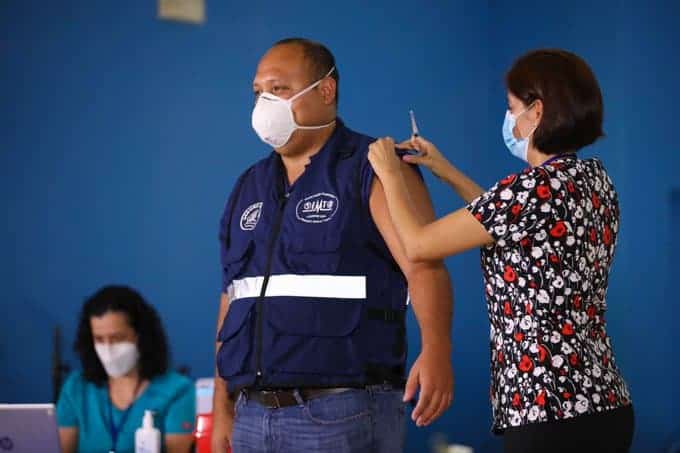Costa Rica’s public workers are required to get a Covid-19 vaccine starting Friday, October 15.
The mandate was enacted by Executive Decree No. 43249-S, signed by President Carlos Alvarado and the Minister of Health, Daniel Salas.
The decree applies to all public-sector officials as well as “employees of the private sector whose employers, within their internal labor provisions, choose to incorporate such vaccination as mandatory,” the Presidency said in a statement. The only named exception is for employees for whom the vaccine is medically contraindicated.
Repercussions for individuals who do not abide by the mandate are “the responsibility of the employer … in accordance to the country’s legislation and institutional regulations,” the decree reads.
The mandatory nature of the Covid-19 vaccine was first announced September 28 after it was approved by Costa Rica’s National Vaccination and Epidemiology Commission.
“The Commission made the decision based on epidemiological variables such as the number of Covid-19 cases, the mortality of the disease, the increased circulation of the Delta variant and the high hospital occupancy, which is impacted to a greater extent by patients who are not vaccinated,” the Health Ministry said at the time.
Costa Rica has already mandated the coronavirus vaccine for Health Ministry workers, Costa Rican Social Security Fund employees, the Red Cross and others who work in patient care. Costa Rica has about 325,000 public workers, per a 2019 report, though the pandemic has increased unemployment.
As of December 1, Costa Rica will also require vaccination among everyone ages 12 and older to enter many businesses and participate in large activities.
Repercussions for unvaccinated
According to Teletica: Public employees who refuse vaccination will be exposed to a fine of a base salary (₡462,000) and will be reported to the Public Ministry. In addition, labor law specialist Marco Durante told Teletica, refusing the vaccine could lead to the worker’s dismissal without employer responsibility.
The Presidency has asked public institutions to inform on their employees’ vaccine progress by November 5.
Costa Rica’s vaccine laws
Costa Rica has long mandated vaccines, and such requirements are supported by the country’s laws.
Per Article 150 in the Ley General de Salud:
Vaccination and revaccination against communicable diseases determined by the Ministry is obligatory. Exceptional cases, for medical reasons, will be authorized only by the corresponding health authority.
Among the mandatory vaccines in Costa Rica are: measles, rubella and mumps (MMR); tuberculosis (BCG); Hepatitis B; influenza; tetanus and diphtheria (DTaP).
The Covid-19 vaccine is free and widely available to all Costa Rican citizens and residents ages 18 and up.
About 3.5 million people have received at least one dose; Costa Rica hopes to inoculate 4.27 million people, comprising all citizens and residents ages 12 and up.






